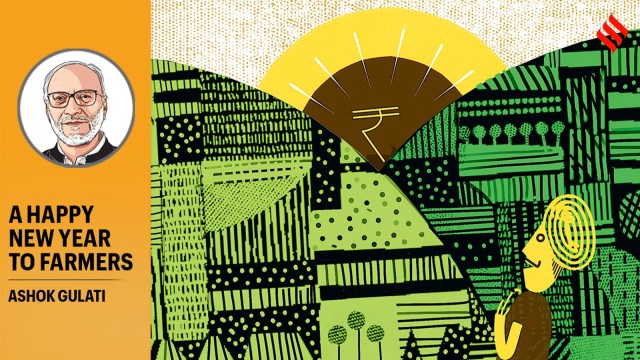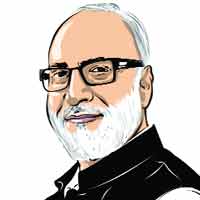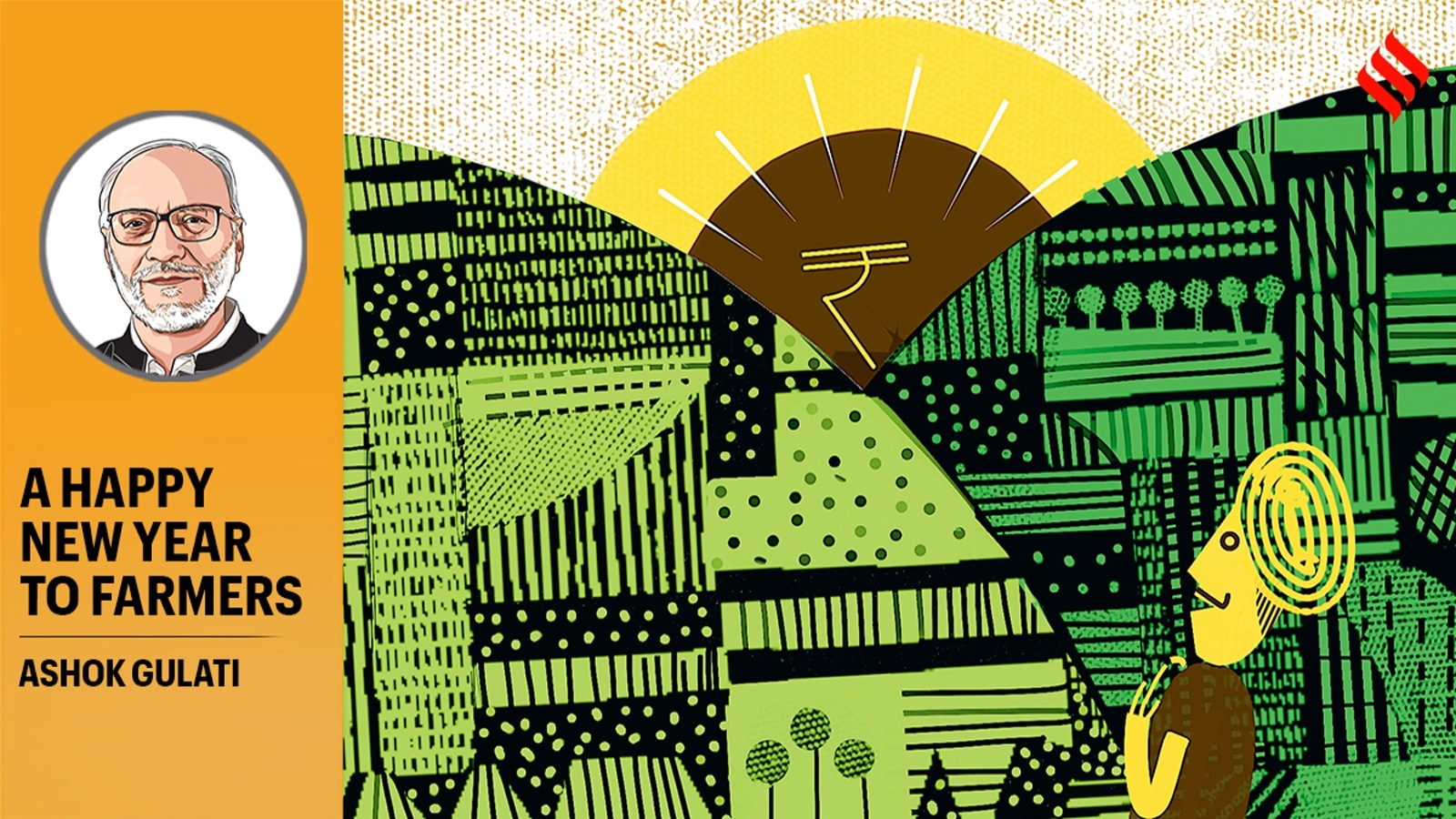

Jan 6, 2025 11:39 IST First published on: Jan 6, 2025 at 06:55 IST
A very happy, peaceful, and prosperous new year to readers of this column.
What could I wish for Indian agriculture, a subject that has been my lifelong passion and commitment? My dream would be to see vibrant and sustainable agriculture, which is climate resilient, increases productivity, brings prosperity to farmers, and most of all, improves the real wages of farm workers, who are at the bottom of the economic pyramid. It is only by raising productivity that India can rein in food inflation, which has been playing spoilsport of late. The Reserve Bank of India (RBI) has been literally humbled by veggies inflation at 29 per cent (and potato inflation at 67 per cent) in November 2024. They have not allowed the Bank to reduce the repo rate. That is simply tragic.
The India Meteorological Department (IMD) has made it clear that 2024 was the warmest year since 1901, and that temperatures have been 0.9 degrees Celsius higher in 2024 compared to the Long Period Average. Earlier, studies by scientists of the Indian Council of Agricultural Research had predicted that an increase in temperature by one degree Celsius runs the risk of reducing wheat output by five per cent. Wheat is likely to be most impacted by heat spikes in February when grain formation happens.
Although Prime Minister Narendra Modi has released 109 varieties of various crops (including wheat) that are supposed to be climate resilient, the challenge of taking them from labs to farmers’ lands remains daunting. This is so because the government’s agri-extension network is the weakest link in the system.
Agri-R&D as well as agri-extension need a major boost in the coming budget if Indian agriculture has to be climate resilient. In this context, it may be noted that in the last three years or so, there has been a wide gap between the government’s estimates of wheat production and that of the private trader. No wonder wheat prices have been under pressure and government stocks are meagre. The government is trying to suppress wheat prices by releasing wheat at about Rs 2,300/quintal in the open market while the minimum support price (MSP) for the forthcoming season is Rs 2,450/quintal and the economic cost to FCI is about Rs 2,800/quintal. This is simply dumping and anti-farmer.
PM Modi wants to make India viksit by 2047. But this goal cannot be achieved unless farmers’ and farm workers’ incomes improve appreciably. The Periodic Labour Force Survey (PLFS) shows that real wages in rural areas (including farm wages) have stagnated and even marginally declined in the last five years. This should have been the primary topic for constructive discussion in Parliament and the mainstream media, as it impacts the lives of millions. Unfortunately, in the last session of Parliament, the issue scarcely received attention.
If India has to realise the dream of Viksit Bharat, we need to find business models that make development processes more inclusive. So far, we have not been very successful in that. And when we fail to do it, we lean towards the revdi culture of freebies. This culture runs through all political parties, be it in the name of Ladli Behna Yojana in Madhya Pradesh or Ladki Bahin Yojana in Maharashtra’s recent assembly elections or now Aam Aadmi Party’s (AAP) promise to give Rs 18,000/ month to pujaris and granthis, if it is voted back to office in Delhi.
India cannot progress with such doles. As honest taxpayers, we wonder how our money is being frittered away. I wonder why the Election Commission is silent on such ludicrous promises. Will the Supreme Court step in to bring some order among political parties on election promises that are damaging our democracy? Most of these are simply bribes for votes, and waste of taxpayers’ money. The taxpayer feels totally helpless and cheated.
Coming back to reforming agriculture, politically, for the Modi government, 2025 seems a golden chance as parliamentary elections are far away. The big expenditures in rural areas, including agriculture are from the Central budget. The food and fertiliser subsidies, for instance. Together, they are likely to cross Rs 4 lakh crore. Add to it the PM-KISAN and MGNREGA programmes and the expenditure would easily cross Rs 5 lakh crore out of a budget of about Rs 45 lakh crore (FY25). Spending needs to be rationalised. At least Rs 1 lakh crore can be saved and invested back in agriculture and rural areas. They can be used to build basic infrastructure from rural roads to water harvesting structures to upgrading agri-mandis and rural haats.
most read
But how do we rationalise these mega subsidies and the so-called welfare programmes? Fertiliser subsidy needs to be merged with PM-Kisan and given to farmers directly on a per hectare basis while fertiliser prices need to be de-regulated and freed. Micro-managing prices for each urea plant, and then informally controlling even DAP prices, when in theory they are relatively free, reminds one of the socialist era. That urea prices have not been revised since 2012, while all other commodity prices have gradually risen, reflects the timidity of the government. This is neither helping farmers increase productivity nor is it beneficial to the planet — the subsidies only encourage inefficient use and massive diversions.
Similarly, food subsidy has to be targeted and given in the form of digital coupons to be spent on say 20 nutritious food items. The MGNREGA scheme needs to be synced with agri-work and PM-Awas Yojana.
The system needs a major overhaul. It can be done if the Modi government is bold and remains focused. Else, I am afraid, India will keep limping with occasional falls and injuries in its journey to Viksit Bharat by 2047.
Gulati is Distinguished Professor at ICRIER. Views are personal
Discover the Benefits of Our Subscription!
Stay informed with access to our award-winning journalism.
Avoid misinformation with trusted, accurate reporting.
Make smarter decisions with insights that matter.
Choose your subscription package


